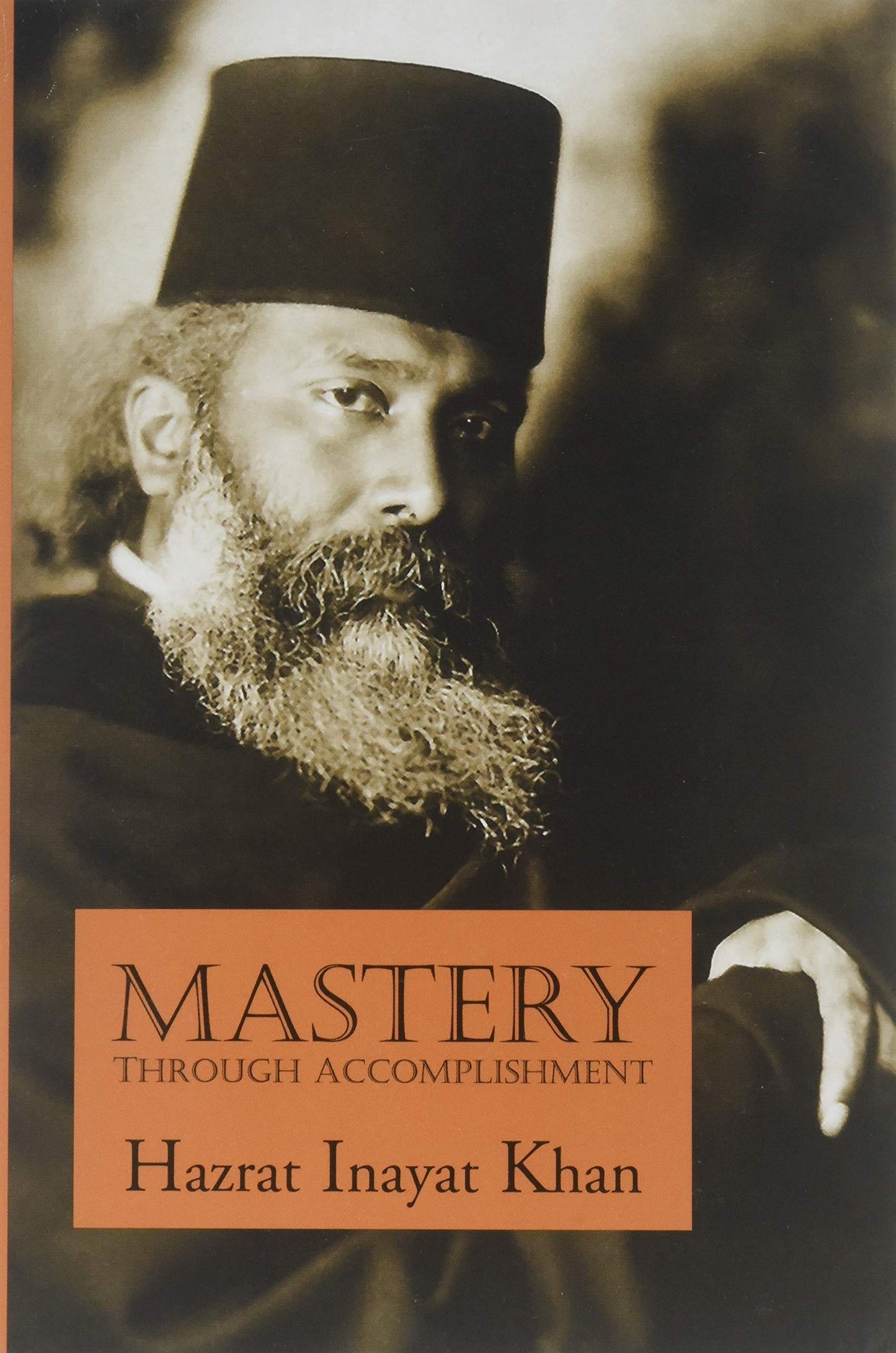Mastery Through Accomplishment
Mastery Through Accomplishment
Couldn't load pickup availability
View full details
Teachings of Hazrat Inayat Khan on destiny and free will, knowing life’s purpose, self-discipline, the struggle of life, and rising above limitation.
Many readers consider this book to be the most practical place to begin working with the teachings of Inayat Khan. Accomplishment in worldly affairs is not viewed as a hindrance on the spiritual path, but is seen as the means of developing the ability to achieve what one wishes, and ultimately to achieve the purpose of one’s life.
“It is not necessary for man to leave all the things of the world and go into retreat. He can attend to his business, to his profession, to his duties in life and yet at the same time develop this spirit in himself, which is the spirit of mastery. Mastery is not only a means of accomplishing the things of the world, but it is that by which a person fulfills the purpose of his life.”
Hazrat Inayat Khan (1882 1927) came to Europe and America from his native India with a message of love, harmony, and beauty that was a new approach to harmonizing Western and Eastern spirituality. He established a school of spiritual training based upon traditional Sufi teachings infused with the vision of the unity of religious ideals and the awakening of humanity to the divinity within. Inayat Khan died in India in 1927, leaving a significant body of recorded discourse and instruction on all things pertaining to spiritual ideals in the midst of life in the world.
Pir Vilayat Inayat Khan (1916 -2004) was the eldest son of Sufi Murshid Hazrat Inayat Khan and Ora Ray Baker. As his father’s successor, Pir Vilayat served as head of the Sufi Order International for fifty years. Born in London, England, Pir Vilayat Inayat Khan was educated at the Sorbonne, Oxford, and L’École Normale de Musique de Paris. During World War II he served in the British Royal Navy on a minesweeper and participated in the invasion at Normandy. His sister, Noor-un-nisa Inayat Khan served in the French Resistance as a radio operator and was executed at Dachau. After the war, Pir Vilayat pursued his spiritual training by studying with masters of many different religious traditions throughout India and the Middle East. While honoring the initiatic tradition of his Sufi predecessors, Pir Vilayat continually adapted traditional Eastern spiritual practices in keeping with the evolution of Western consciousness, psychology, and science. He initiated and participated in many international and interfaith conferences promoting understanding and world peace.

